Open Access Journals
Explore all of Peertechz Open Access Journals
Archive of Biochemistry is an open access, peer reviewed and global journal dedicated to publishing high-quality research work in all disciplines of Biochemistry sciences. Biochemistry is the closest subject which focusses to unravel the mystery of life, unwinding how different chemical co ... Read More
Hepatology is the branch of medicine concerned with the study of liver, gallbladder, biliary tree, and pancreas as well as management of their disorders. The term hepatology is derived from the Greek words “hepatikos” and “logia,” which mean liver and study, respectively. Diseases and comp ... Read More
Robotics is the branch of mechanical engineering, electrical engineering, electronic engineering and computer science that deals with the design, construction, operation, and application of robots as well as computer systems for their control, sensory feedback, and information processing. ... Read More
Proteins are large molecules, made by human body cells continuously. Each protein is made up of many amino acids which may be joined together in correct order for the protein to work properly. In order to illustrate this concept, we can take a general example of assembling automobiles. ... Read More
Open Journal of Bioinformatics and Biostatistics is a peer reviewed Open Access Journal endeavored to comprehend research and development in the field of Bioinformatics and Biostatistics. The journal aims to publish high quality original research papers, viewpoint articles, technical paper ... Read More
Systems biology is based on the understanding of the human health and environmental sustainability. The systems biology is considered as the most holistic approach to deciphering the complexity of biological systems that starts from the understanding that the networks that form the whole o ... Read More
Open Journal of Pharmacology and Pharmacotherapeutics is a peer reviewed journal, which is a part of Pharmaceutical Sciences. Journal aims to provide a better platform to foster research and sharing of ideas across various spectrums of pharmacology and pharmacokinetics among students, rese ... Read More
Clinical or medical virology is a branch of clinical pathology which consists in isolating and/or in characterizing one or several viruses responsible for human pathology by various direct or indirect techniques. It also consists in proving the absence of resistance of viruses in treatment ... Read More
The Pancreas is a glandular organ in the digestive system and endocrine system of vertebrates. In humans, it is located in the abdominal cavity behind the stomach. The pancreas does two main things: It releases powerful digestive enzymes into the small intestine to aid the digestion ... Read More
Forensic Science Today is a multidisciplinary subject that drawn principally from Chemistry, Physics, Biology, Geology, Psychology and even social sciences. Forensic plays an important role in criminal investigations and it is equally used in archeology, Anthropology, Astronomy and Victimo ... Read More
Archive of Urological Research is an open access, global and peer reviewed journal. The journal provides an online platform for researchers to publish major breakthroughs and comprehensive information about surgical and medical diseases in urinary tract systems amongst humans. Journal has ... Read More
International Journal of Spine Research is an open access, peer reviewed and global journal. It provides an excellent online platform for the scientific fraternity to share their research work across the world. The journal has been founded keeping in mind the increasing specialisation in a ... Read More
Bone Marrow is the spongy tissue inside some of the bones in the body, including the hip and thigh bones. Bone Marrow contains immature cells, called stem cells. Numerous people with blood cancers such as leukemia, lymphoma, sickle cell anemia and other life-threatening diseases, rely on B ... Read More
Peertechz’s Open Journal of Proteomics is a highly versatile initiative towards the development of knowledge and inspiration. Open Journal of Proteomics encourages academicians, scientists, innovators, doctors and authors to publish path breaking research articles and discoveries in Proteo ... Read More
Advances in Toxicology and Toxic Effects (ATTE) is a one of the most internationally popular Open access, peer reviewed Journal which offers a comprehensive range of multidisciplinary scientific research, clinical advances and review papers, covering range of topics in Toxicology and Toxic ... Read More
Antivirals and Antiretrovirals are a class of medication specifically used to treat viral and retroviral infections caused by viruses like HIV, herpes viruses, hepatitis B and C. Antivirals are a class of drugs which are used to treat viral infections. The antiviral drugs target diverse gr ... Read More
Peertechz works with the mission to make the people of the world healthier through the power of information. We put efforts to make global society aware and healthier by publishing peer reviewed manuscripts of prominent authors, researchers, doctors and scientists. We do this by creating p ... Read More
The Annals of Molecular and Genetic Medicine is an international academic journal publishing rigorously peer-reviewed research. The major aim of the Annals is to increase understanding of the biology of molecular and genetic medicine, both in health and in disease. The scholarly journal wh ... Read More
The Annals of Alzheimer's and Dementia Care is an Open Access, international peer-reviewed journal publishing wide range of research in the field of Alzheimer's and Dementia. The mission of Annals of Alzheimer's and Dementia Care is to bridge the knowledge gaps across a wide range of bench ... Read More
International Journal of Sexual and Reproductive Health Care is an open access, peer reviewed and a global journal. The journal is dedicated to its readers as an authoritative resource disseminating scientific information about sexual and reproductive health care related to men and women. ... Read More
Archive of Gerontology and Geriatrics Research is an open access, peer reviewed journal that brings about latest research in all related fields of Gerontology and Geriatric Research. The Journal brings timely updates upon the latest research happenings in the field of medicine that include ... Read More
Open Journal of Environmental Biology is a broad-based, peer-reviewed, leading International Journal, and which offers a comprehensive range of multidisciplinary scientific research, review papers dealing with all aspects of Environmental Sciences, Environmental Pollution, Toxicology, Envi ... Read More
Annals of Mathematics and Physics is an open access, global and peer reviewed journal. It is dedicated to publishing cutting edge research work in the field of Mathematics and Physics. The journal has a distinguished and eminent Editorial board which takes care of stringent peer review pr ... Read More
Open Journal of Analytical and Bioanalytical Chemistry is a most popular Open access, peer reviewed journal with a mission to publish excellent research papers in the area of Analytical and Bioanalytical Chemistry. Open Journal of Analytical and Bioanalytical Chemistry is an international ... Read More
Journal of Biology and Medicine is a one of a kind journal which publishes scientific peer-reviewed articles with emphasis to cellular and molecular basis of biology and medicine. It is an open access journal and promote publications for developing and under developed countries with "Publi ... Read More
Peertechz gratifies your presence in the world of Perioperative Medicine. We take the privilege to publish peer reviewed and open access Global Journal of Perioperative Medicine. Global Journal of Perioperative Medicine publishes and promotes highly topical clinical research relating to ... Read More
Rheumatology and Orthopedics deal with the branch of medical science which consists of human bones. Thus, it is Online Journal, Orthopedics & Rheumatology ensures that the modern society of scholars, researchers and scientists have proper knowledge about the advancement of technology and m ... Read More
Peertechz’s Archives of Sports Medicine and Physiotherapy is a broad international journal that works with the motive to create awareness between all professionals in the fields of sports medicine. ... Read More
Ecology provides the essential basis for nature conservation. It is the study of the distribution and abundance of organisms, the interaction between organisms and their environment, and structure and function of ecosystems. Although ecology includes the study of environmental problems suc ... Read More
Trends in Computer Science and Information Technology is an open access journal that publishes articles, which contribute new repercussions in selected areas of the computer science and engineering. It is a peer reviewed journal intended for professionals and researchers in all fields of ... Read More
Limnology refers to a branch of ecology or environmental science. It covers the biological, chemical, physical, geological, and other attributes of all inland waters. Oceanography is the science of oceans and seas that includes different prominent aspects such as marine environmental manag ... Read More
Open Journal of Chemistry is a peer-reviewed, open-access journal dedicated to the latest advancements in medicinal chemistry. The goal of this journal is to provide a platform for scientists and academicians all over the world to promote, share, and discuss various new issues and perspe ... Read More
Journal of Food Science and Nutrition Therapy is a International wide-ranging Open Access, peer reviewed; scientific journal that covers multidisciplinary fields and it provides an increased awareness of the Food, Nutrition, Nutrition Therapy, Dietary intake, Obesity, Weight Management, Nu ... Read More
Archive of Biomedical Science and Engineering is an Open Access, peer-reviewed, academic journal, which gives an area to share the information among the medical scientists and researchers. Archive of Biomedical Science and Engineering is a scientific journal including a wide range of field ... Read More
Studies on Stem Cells Research and Therapy is an international, interdisciplinary, scientific, open access and well-established journal which is dedicated to publish high quality manuscripts focus on biology and applications of stem cell research and Transplantation. The peer reviewed jour ... Read More
The circulatory system is a vast network of organs and vessels that is responsible for the flow of blood, nutrients, hormones, oxygen and other gases to and from cells. Without the circulatory system, the body would not be able to fight disease or maintain a stable internal environment — s ... Read More
Archives of Hepatitis Research is an international, open access, peer-reviewed Journal, dedicated to the clinical and investigative studies, treatments, new diagnostic techniques, and other topics relating to the prevention, diagnosis, and treatment of disorders of the Hepatitis. The journ ... Read More
Annals of Environmental Science and Toxicology is a multidisciplinary peer-reviewed journal with reputable academics and experts. It is designed for the prompt publication peer-reviewed articles in the scope of the subject. Journal intended for professionals and researchers in all fields o ... Read More
Journal of Neurology, Neurological Science and Disorders is a wide-ranging Open Access, peer reviewed, internationally-recognized; scientific journal that covers multidisciplinary fields and it provides an increased awareness of the Neurology and Neuroscience. We propose never ending acces ... Read More
Open Journal of Tropical Medicine is a one of a different journal which offers a comprehensive range of multidisciplinary research and review papers, covering topics ranging from Tropical Medicine. This journal aims to stimulate scientific and policy debate and provide a forum for analysis ... Read More
Musculoskeletal medicine embodies all medical disciplines that deal with the diagnosis of acute and chronic conditions affecting the musculoskeletal system in adults and children, including the psychosocial impact of these conditions. Musculoskeletal conditions may result from a wide range ... Read More
At some point in life, virtually everyone experiences some type of pain. Pain is often classified as acute or chronic. Acute pain, such as postoperative pain, subsides as healing takes place. Chronic pain is persistent and is subdivided into cancer-related pain and nonmalignant pain, such ... Read More
Asthma is a disease affecting the airways that carry air to and from our lungs. People who suffer from this chronic condition, long-lasting or recurrent are said to be asthmatic. The inside walls of an asthmatic's airways are swollen or inflamed. This swelling or inflammation makes the air ... Read More
Psychiatry is the medical area of expertise dedicated to the study, diagnosis, treatment, and prevention of mental disorders. These include various affective, behavioural, cognitive and perceptual abnormalities. ... Read More
Bacteriology is the branch of biology devoted to the study of bacteria. This subdivision of microbiology involves the identification, classification, and characterization of bacterial species. Bacteria including both the true bacteria and the Archaea are the oldest and most diverse forms o ... Read More
Rheumatism or rheumatic disorder refers to an acute or chronic illness which is characterized by inflammation and reduced function of connecting or supporting structures such as the joints, tendons, ligaments, bones, and muscles. Polymyalgia rheumatic, sometimes referred to as PMR, is a co ... Read More
Peertechz welcomes all the authors, researchers, scientists and doctors to send their valuable manuscripts for publication in Open Journal of Thyroid Research. The Open Journal of Thyroid Research is a peer-reviewed official journal of Peertechz that publishes original research articles, r ... Read More
Organ transplantation is a surgical procedure to replace a failing, diseased organ with a healthier donor organ, such as a heart, liver, kidney, or lung. Donor organs can come from deceased donors, which is always the case in heart transplants, or from living donors, which can happen in ki ... Read More
Anatomy is the identification and description of the structures of living things. Anatomy can be divided into versatile areas such as gross/topographical/macroscopic anatomy and microscopic anatomy. Gross anatomy refers to the study of the biological structures that may be seen with the ... Read More
Trauma is used to refer both to negative events that produce distress and to the distress itself. Technically, "trauma" refers only to the event, not the reaction, and should be reserved for major events that are psychologically overwhelming for an individual. ... Read More
Zoology is the aspect of science that deals with the study of the animals' evolution, habitat and behavior. This science explains the world of animals, their evolution to the present forms over time, their habitats and food habits, and their co-existence with each other. Humans appreciate ... Read More
Hematology is the science or study of blood, blood-forming organs and blood diseases. The medical aspect of hematology is concerned with the treatment of blood disorders and malignancies, including types of hemophilia, leukemia, lymphoma and sickle-cell anemia. The Peertechz's Archives ... Read More
The Peertechz's Open Journal of Plant Science is a unique initiative to make society aware how plant science is of utmost importance for securing humankind's future well-being. Plant science or plant biology or botany is the study of plants, their diversity and structure, and how they f ... Read More
Fertility is the natural capability to produce offspring. As a measure, fertility rate is the number of offspring born per mating pair, individual or population. Human fertility depends on factors of nutrition, sexual behavior, consanguinity, culture, instinct, endocrinology, timing, econo ... Read More
Rare diseases are life-threatening or chronically debilitating diseases which are of such low prevalence that special combined efforts are needed to address them. A rare disease, also referred to as an orphan disease, is any disease that affects a small percentage of the population. ... Read More
Preventive medicine is the medical practice designed to avert and avoid disease. Preventive medicine takes a proactive approach to patient care. Preventive medicine includes all measures which limit progression of disease at any stage of its course. A distinction in preventive medicine is ... Read More
Global Journal of Biotechnology and Biomaterial Science is an academic journal providing an opportunity to researchers and scientist to explore the advanced and latest research developments in the use of living organisms and bioprocesses in engineering, technology, and medicine. The Global ... Read More
Cytology is a branch of Life Science that deals with the structure, functioning and the Chemistry of ‘Cell’, a basic unit of the living organism. Pathology is the study of microscopic anatomy of cellular and molecular mechanism of disease. The Cytology & Pathology Journal enhances our unde ... Read More
Open Journal of Biological Sciences is a bimonthly journal publishes the finest peer-reviewed research in the field of biology, on the basis of its originality, importance, disciplinary interest, elegance, surprising discussions and conclusions and serves as a means for scientific informat ... Read More
International Journal of Pharmaceutical Sciences and Developmental Research provide an unrestricted access to information in the field of Pharmacy and Pharmaceutical Sciences by covering wide and diversified themes like drug discovery and development, adverse drug events and toxicological ... Read More
Scientific Journal of Genetics and Gene Therapy is an international and interdisciplinary, open access, scientific and elevated scope journal which covers most up-to-date and excellent research works/top quality papers on gene therapy and genetics including molecular genetics and evolution ... Read More
Archives of Clinical Hypertension is an international, open access, peer-reviewed Journal, dedicated to the clinical and investigative studies, treatments, new diagnostic techniques, and other topics relating to the prevention, diagnosis, and treatment of disorders of the Hypertension and ... Read More
Open Journal of Pediatrics and Child Healthy is the official journal, is a peer-reviewed multi disciplinary journal that is devoted to promoting the safe and effective use of medications in infants and children. The journal publishes practical information for all practitioners who provide ... Read More
International Journal of Veterinary Science and Research is a comprehensive, peer reviewed journal devoted to Veterinary Science and Research. IJVSR is an Open Access journal that includes high quality papers, which covers all major areas of Veterinary Science & Research. Journal publicati ... Read More
Journal of Vaccines and Immunology is a peer reviewed, online, international, open access journal which encompassing aspects of research on all phases of immunology and in the research of Vaccines. The Journal is rapidly available, and easy to get globally through internet for scholarly de ... Read More
International Journal of Clinical Endocrinology and Metabolism is an Open Access peer reviewed, online publishing journal, which aims to publish quality papers in the relevant areas of current advanced research. The journal will cover technical and clinical studies related to health, ethic ... Read More
International Journal of Radiology and Radiation oncology is a peer reviewed open access journal that publishes high-quality original manuscripts in all the disciplines of diagnostic, interventional, therapeutic radiology, radiation physics and radiation biology. The Journal deals the use ... Read More
Are you are fascinated by amazing marine and coastal environments and eager to write about? If yes, Peertechz’s Annals of Marine Science is the ideal platform that assists you in developing and publishing manuscripts on marine science. The oceans are part of the thin, outer shell of the ... Read More
Global Journal of Cancer Therapy is an academic, open access and well-established journal which is keen to publishing high quality manuscripts focusing on cancer therapy. The peer reviewed journal which creates scientific platform is taking into an account on all the most recent and outsta ... Read More
Journal of Gynecological Research and Obstetrics provide articles on all aspects of basic and clinical research in the fields of gynecology and obstetrics and related subjects, with emphasis on matters of worldwide interest. Gynecology & Obstetrics is a peer reviewed medical journal encomp ... Read More
Journal of Clinical Microbiology and Biochemical Technology is the journal aspired to serve as prominent form of communication with online publishing speeding quickly to meet the needs of literature world by publishing quality articles and making aware the people with new technologies in M ... Read More
Archives of Nursing Practice and Care is an international, open access, peer-reviewed Journal, dedicated to the Nurses in the health care sector targeted on the care of people, families, and communities in order that they might attain, maintain, or recover optimum health and quality of lif ... Read More
Archives of Clinical Nephrology is an international, open access, peer-reviewed Journal, dedicated to the clinical and investigative studies, treatments, new diagnostic techniques, and other topics relating to the prevention, diagnosis, and treatment of disorders of the Kidney and its sub- ... Read More
Archives of Pulmonology and Respiratory Care is an international, open access, peer-reviewed Journal, dedicated to the clinical and investigative studies, treatments, new diagnostic techniques, and other topics relating to the prevention, diagnosis, and treatment of diseases related to res ... Read More
Imaging Journal of Clinical and Medical Sciences is a peer-reviewed, online, scientific international journal started for highly reputed radiologists, students, upcoming scientists and researchers from each corner of the globe. It widely covers new applications, technologies, and issues co ... Read More
International Journal of Dermatology and Clinical Research is an international, peer-reviewed, dedicated to the clinical and investigative studies, treatments, new diagnostic techniques, and other topics relating to the prevention, diagnosis, and treatment of disorders of the skin. The jou ... Read More
International Journal of Immunotherapy and Cancer Research is a multi-disciplinary peer-reviewed, open access journal. Journal brings together all the varied aspects of research that will ultimately lead to the prevention of cancer. With the goal of advancing technology and improving healt ... Read More
Global Journal of Obesity, Diabetes and Metabolic Syndrome is a scientific, an open access, online, peer reviewed, and elevated scope journal which covers modish and exceptional research works/top quality papers on laboratory, animal or clinical research into diabetes and metabolic syndrom ... Read More
The International Journal of Aquaculture and Fishery Sciences is an international research journal, which publishes top-level work from all areas of fisheries sciences and aquatic. Areas and subareas of interest include biology and ecology of marine and freshwater organisms, limnology, oce ... Read More
International Journal of Agricultural Science and Food Technology is an international research journal, which publishes top-level work from all areas of Agricultural and Food Science including pure research in the various sciences associated with food; and practical experiments designed to ... Read More
Global Journal of Allergy is an open access, international, a peer reviewed distinguished journal which covers the outstanding and most update research works⁄peak quality papers in all areas of allergy. Global Journal of Allergy provides consistent information to update online viewers with ... Read More
Archives of Renal Diseases and Management is an international, open access, peer-reviewed Journal, dedicated to the clinical and investigative studies, treatments, new diagnostic techniques, and other topics relating to the prevention, diagnosis, and treatment of diseases. The journal publ ... Read More
Journal of Novel Physiotherapy and Physical Rehabilitation is an open access, academic, well-established, international journal which is dedicated to publishing high quality manuscripts focus on Novel Physiotherapy and physical Rehabilitation. The peer reviewed journal which aims to advanc ... Read More
Archives of Community Medicine & Public Health is an international, open access, peer-reviewed Journal, dedicated to the clinical and investigative studies, treatments, new diagnostic techniques, and other topics relating to the prevention, diagnosis, and treatment of diseases affecting co ... Read More
Archives of Depression & Anxiety is an international, open access, peer-reviewed Journal, dedicated to the clinical and investigative studies, treatments, new diagnostic techniques, and other topics relating to the prevention, diagnosis, and treatment of Depressive, Mood and Anxiety Disord ... Read More
International Journal of Vascular Surgery and Medicine is the field that deals with preventing, diagnosing and treating vascular and blood vessel related diseases. The goal of the journal is to provide an Open access platform for researchers to share their expert knowledge in basic, clinic ... Read More
Global Journal of Infectious Diseases and Clinical Research is an international peer-reviewed journal founded by a network of experts across the globe recognized as the International Infectiologists Network. The mission of GJIDCR is to promote and publish infectious diseases research in ar ... Read More
Global Journal of Medical and Clinical Case Reports is a scientific, an open access, international and interdisciplinary, a peer-reviewed online journal publishing innovative case reports in all clinical, medical and experimental disciplines. Global Journal of Medical and Clinical Case Rep ... Read More
The Journal of Civil Engineering and Environmental Sciences, which is a part of Recent Science Journals provides a wide range of the highly technological, original, creative and quality publications covering a broad area of research activities in the Civil and Environmental Engineering sci ... Read More
International Journal of Oral and Craniofacial Science is a wide-ranging Open Access, peer reviewed, internationally-recognized; scientific journal that covers multidisciplinary fields and it provides an increased awareness of the craniofacial science and maxillofacial surgery. We propose ... Read More
Journal of HIV for Clinical and Scientific Research is a peer-reviewed, an international, open access, online journal focus on progress in HIV-AIDS research and prevention. Journal of HIV for Clinical and Scientific Research is exclusively dedicated to publishing and disseminating all exce ... Read More
International Journal of Nanomaterials, Nanotechnology and Nanomedicine is a multidisciplinary peer-reviewed journal covering fundamental and applied research in all disciplines of science, engineering and medicine. The journal is also committed to create an impact in the field of Nanomate ... Read More
Journal of Addiction Medicine and Therapeutic Science is an international, open access, a peer reviewed academic and distinguished journal which covers the outstanding and most update research works⁄peak quality papers on related to clinical prevention and treatment to harmful alcohol, tob ... Read More
Global Journal of Anesthesiology is a peer reviewed, an open access, international, academic and elevated scope journal which covers most update and marvelous research works/top quality papers on all aspects of medical practice of anesthesiology and improves the care of patient. The schola ... Read More
Journal of Cardiovascular Medicine and Cardiology is an international and interdisciplinary scientific, open access, online, and elevated scope journal which covers the most update and outstanding research works/top quality papers on cardiovascular disease which includes cardiac coronary, ... Read More
Journal of Surgery and Surgical Research is a peer reviewed journal that encompasses all aspects of clinical and basic research studies relevant to the field of surgery. It provides the platform for exchange of new clinical and scientific information in the most precise and expeditious way ... Read More
Archives of Clinical Gastroenterology is an international, open access, peer-reviewed Journal, dedicated to the clinical and investigative studies, treatments, new diagnostic techniques, and other topics relating to the prevention, diagnosis, and treatment of disorders of the Gastro enteri ... Read More
Archives of Otolaryngology & Rhinology is an international, open access, peer-reviewed Journal, dedicated to the clinical and investigative studies, treatments, new diagnostic techniques, and other topics relating to the prevention, diagnosis, and treatment of diseases of Ear, Nose and Thr ... Read More
Journal of Clinical Research and Ophthalmology is an open access, a peer reviewed, online, international, scientific and elevated scope journal which covers most up-to-date and outstanding research works/top quality papers on the entire spectrum of ophthalmology, including prevention, diag ... Read More
Dentistry is a branch of medicine that is involved in the study, diagnosis, prevention and treatment of diseases, disorders and conditions of the oral cavity, the oral mucosa and of adjacent and related structures and tissues, particularly in the maxillofacial (jaw and facial) area. The Jo ... Read More

Archive of Biochemistry
ISSN: 2994-4295
Archive of Biochemistry is an open access, peer reviewed and global journal dedicated to publishing high-quality research work in all disciplines of Biochemistry sciences. Biochemistry is the closest subject which focusses to unravel the mystery of life, unwinding how different chemical co ... Read More

Advances in Toxicology and Toxic Effects
ISSN: 2692-4633
Advances in Toxicology and Toxic Effects (ATTE) is a one of the most internationally popular Open access, peer reviewed Journal which offers a comprehensive range of multidisciplinary scientific research, clinical advances and review papers, covering range of topics in Toxicology and Toxic ... Read More

Annals of Molecular and Genetic Medicine
ISSN: 2692-4595
The Annals of Molecular and Genetic Medicine is an international academic journal publishing rigorously peer-reviewed research. The major aim of the Annals is to increase understanding of the biology of molecular and genetic medicine, both in health and in disease. The scholarly journal wh ... Read More

Archives of Sports Medicine and Physiotherapy
ISSN: 2641-3108
Peertechz’s Archives of Sports Medicine and Physiotherapy is a broad international journal that works with the motive to create awareness between all professionals in the fields of sports medicine. ... Read More

Annals of Circulation
ISSN: 2641-2985
The circulatory system is a vast network of organs and vessels that is responsible for the flow of blood, nutrients, hormones, oxygen and other gases to and from cells. Without the circulatory system, the body would not be able to fight disease or maintain a stable internal environment — s ... Read More
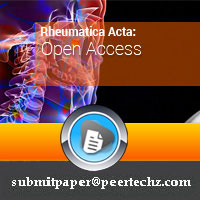
Rheumatica Acta: Open Access
ISSN: 2640-799X
Rheumatism or rheumatic disorder refers to an acute or chronic illness which is characterized by inflammation and reduced function of connecting or supporting structures such as the joints, tendons, ligaments, bones, and muscles. Polymyalgia rheumatic, sometimes referred to as PMR, is a co ... Read More
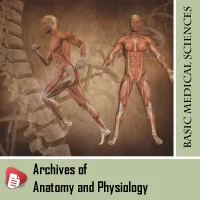
Archives of Anatomy and Physiology
ISSN: 2640-7957
Anatomy is the identification and description of the structures of living things. Anatomy can be divided into versatile areas such as gross/topographical/macroscopic anatomy and microscopic anatomy. Gross anatomy refers to the study of the biological structures that may be seen with the ... Read More

Annals of Cytology and Pathology
ISSN: 2640-7809
Cytology is a branch of Life Science that deals with the structure, functioning and the Chemistry of ‘Cell’, a basic unit of the living organism. Pathology is the study of microscopic anatomy of cellular and molecular mechanism of disease. The Cytology & Pathology Journal enhances our unde ... Read More

Archives of Nursing Practice and Care
ISSN: 2581-4265
Archives of Nursing Practice and Care is an international, open access, peer-reviewed Journal, dedicated to the Nurses in the health care sector targeted on the care of people, families, and communities in order that they might attain, maintain, or recover optimum health and quality of lif ... Read More
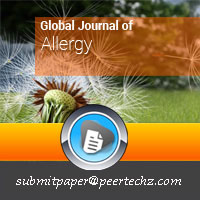
Global Journal of Allergy
ISSN: 2455-8141
Global Journal of Allergy is an open access, international, a peer reviewed distinguished journal which covers the outstanding and most update research works⁄peak quality papers in all areas of allergy. Global Journal of Allergy provides consistent information to update online viewers with ... Read More
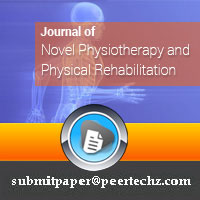
Journal of Novel Physiotherapy and Physical Rehabilitation
ISSN: 2455-5487
Journal of Novel Physiotherapy and Physical Rehabilitation is an open access, academic, well-established, international journal which is dedicated to publishing high quality manuscripts focus on Novel Physiotherapy and physical Rehabilitation. The peer reviewed journal which aims to advanc ... Read More
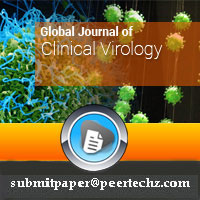
Global Journal of Clinical Virology
ISSN: 2692-4749
Clinical or medical virology is a branch of clinical pathology which consists in isolating and/or in characterizing one or several viruses responsible for human pathology by various direct or indirect techniques. It also consists in proving the absence of resistance of viruses in treatment ... Read More
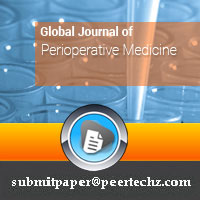
Global Journal of Perioperative Medicine
ISSN: 2641-3124
Peertechz gratifies your presence in the world of Perioperative Medicine. We take the privilege to publish peer reviewed and open access Global Journal of Perioperative Medicine. Global Journal of Perioperative Medicine publishes and promotes highly topical clinical research relating to ... Read More
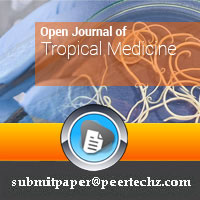
Open Journal of Tropical Medicine
ISSN: 2640-8147
Open Journal of Tropical Medicine is a one of a different journal which offers a comprehensive range of multidisciplinary research and review papers, covering topics ranging from Tropical Medicine. This journal aims to stimulate scientific and policy debate and provide a forum for analysis ... Read More
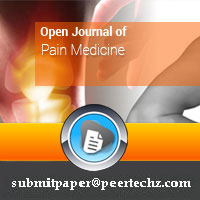
Open Journal of Pain Medicine
ISSN: 2640-8104
At some point in life, virtually everyone experiences some type of pain. Pain is often classified as acute or chronic. Acute pain, such as postoperative pain, subsides as healing takes place. Chronic pain is persistent and is subdivided into cancer-related pain and nonmalignant pain, such ... Read More
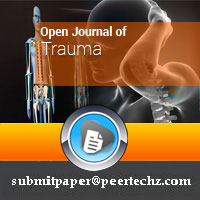
Open Journal of Trauma
ISSN: 2640-7949
Trauma is used to refer both to negative events that produce distress and to the distress itself. Technically, "trauma" refers only to the event, not the reaction, and should be reserved for major events that are psychologically overwhelming for an individual. ... Read More
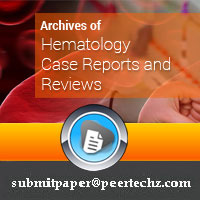
Archives of Hematology Case Reports and Reviews
ISSN: 2640-7914
Hematology is the science or study of blood, blood-forming organs and blood diseases. The medical aspect of hematology is concerned with the treatment of blood disorders and malignancies, including types of hemophilia, leukemia, lymphoma and sickle-cell anemia. The Peertechz's Archives ... Read More
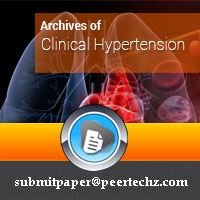
Archives of Clinical Hypertension
ISSN: 2640-771X
Archives of Clinical Hypertension is an international, open access, peer-reviewed Journal, dedicated to the clinical and investigative studies, treatments, new diagnostic techniques, and other topics relating to the prevention, diagnosis, and treatment of disorders of the Hypertension and ... Read More
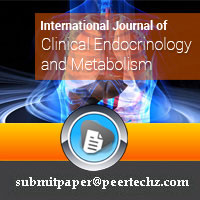
International Journal of Clinical Endocrinology and Metabolism
ISSN: 2640-7582
International Journal of Clinical Endocrinology and Metabolism is an Open Access peer reviewed, online publishing journal, which aims to publish quality papers in the relevant areas of current advanced research. The journal will cover technical and clinical studies related to health, ethic ... Read More
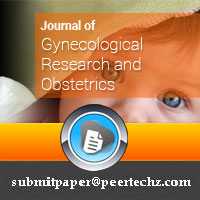
Journal of Gynecological Research and Obstetrics
ISSN: 2581-5288
Journal of Gynecological Research and Obstetrics provide articles on all aspects of basic and clinical research in the fields of gynecology and obstetrics and related subjects, with emphasis on matters of worldwide interest. Gynecology & Obstetrics is a peer reviewed medical journal encomp ... Read More
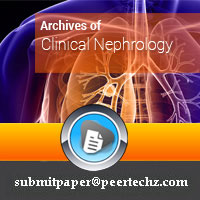
Archives of Clinical Nephrology
ISSN: 2581-3870
Archives of Clinical Nephrology is an international, open access, peer-reviewed Journal, dedicated to the clinical and investigative studies, treatments, new diagnostic techniques, and other topics relating to the prevention, diagnosis, and treatment of disorders of the Kidney and its sub- ... Read More
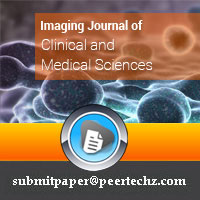
Imaging Journal of Clinical and Medical Sciences
ISSN: 2455-8702
Imaging Journal of Clinical and Medical Sciences is a peer-reviewed, online, scientific international journal started for highly reputed radiologists, students, upcoming scientists and researchers from each corner of the globe. It widely covers new applications, technologies, and issues co ... Read More
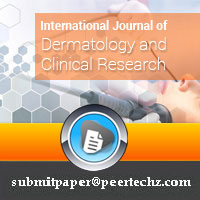
International Journal of Dermatology and Clinical Research
ISSN: 2455-8605
International Journal of Dermatology and Clinical Research is an international, peer-reviewed, dedicated to the clinical and investigative studies, treatments, new diagnostic techniques, and other topics relating to the prevention, diagnosis, and treatment of disorders of the skin. The jou ... Read More
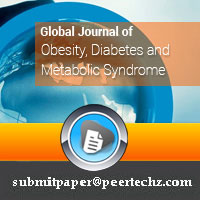
Global Journal of Obesity, Diabetes and Metabolic Syndrome
ISSN: 2455-8583
Global Journal of Obesity, Diabetes and Metabolic Syndrome is a scientific, an open access, online, peer reviewed, and elevated scope journal which covers modish and exceptional research works/top quality papers on laboratory, animal or clinical research into diabetes and metabolic syndrom ... Read More
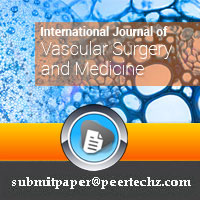
International Journal of Vascular Surgery and Medicine
ISSN: 2455-5452
International Journal of Vascular Surgery and Medicine is the field that deals with preventing, diagnosing and treating vascular and blood vessel related diseases. The goal of the journal is to provide an Open access platform for researchers to share their expert knowledge in basic, clinic ... Read More
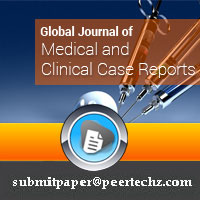
Global Journal of Medical and Clinical Case Reports
ISSN: 2455-5282
Global Journal of Medical and Clinical Case Reports is a scientific, an open access, international and interdisciplinary, a peer-reviewed online journal publishing innovative case reports in all clinical, medical and experimental disciplines. Global Journal of Medical and Clinical Case Rep ... Read More
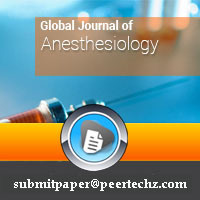
Global Journal of Anesthesiology
ISSN: 2455-3476
Global Journal of Anesthesiology is a peer reviewed, an open access, international, academic and elevated scope journal which covers most update and marvelous research works/top quality papers on all aspects of medical practice of anesthesiology and improves the care of patient. The schola ... Read More
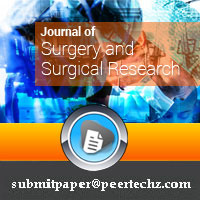
Journal of Surgery and Surgical Research
ISSN: 2455-2968
Journal of Surgery and Surgical Research is a peer reviewed journal that encompasses all aspects of clinical and basic research studies relevant to the field of surgery. It provides the platform for exchange of new clinical and scientific information in the most precise and expeditious way ... Read More
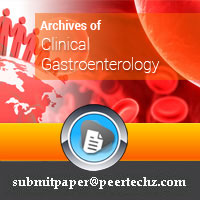
Archives of Clinical Gastroenterology
ISSN: 2455-2283
Archives of Clinical Gastroenterology is an international, open access, peer-reviewed Journal, dedicated to the clinical and investigative studies, treatments, new diagnostic techniques, and other topics relating to the prevention, diagnosis, and treatment of disorders of the Gastro enteri ... Read More
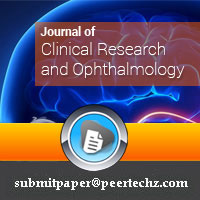
Journal of Clinical Research and Ophthalmology
ISSN: 2455-1414
Journal of Clinical Research and Ophthalmology is an open access, a peer reviewed, online, international, scientific and elevated scope journal which covers most up-to-date and outstanding research works/top quality papers on the entire spectrum of ophthalmology, including prevention, diag ... Read More
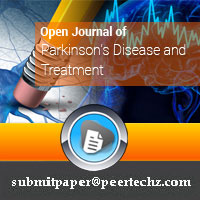
Open Journal of Parkinson's Disease and Treatment
ISSN: 2692-4617
Peertechz works with the mission to make the people of the world healthier through the power of information. We put efforts to make global society aware and healthier by publishing peer reviewed manuscripts of prominent authors, researchers, doctors and scientists. We do this by creating p ... Read More
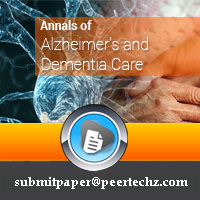
Annals of Alzheimer's and Dementia Care
ISSN: 2692-448X
The Annals of Alzheimer's and Dementia Care is an Open Access, international peer-reviewed journal publishing wide range of research in the field of Alzheimer's and Dementia. The mission of Annals of Alzheimer's and Dementia Care is to bridge the knowledge gaps across a wide range of bench ... Read More
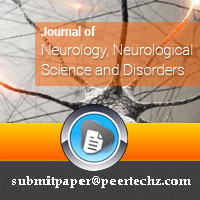
Journal of Neurology, Neurological Science and Disorders
ISSN: 2641-2950
Journal of Neurology, Neurological Science and Disorders is a wide-ranging Open Access, peer reviewed, internationally-recognized; scientific journal that covers multidisciplinary fields and it provides an increased awareness of the Neurology and Neuroscience. We propose never ending acces ... Read More
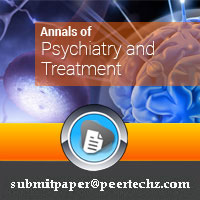
Annals of Psychiatry and Treatment
ISSN: 2640-8031
Psychiatry is the medical area of expertise dedicated to the study, diagnosis, treatment, and prevention of mental disorders. These include various affective, behavioural, cognitive and perceptual abnormalities. ... Read More

Archives of Depression and Anxiety
ISSN: 2455-5460
Archives of Depression & Anxiety is an international, open access, peer-reviewed Journal, dedicated to the clinical and investigative studies, treatments, new diagnostic techniques, and other topics relating to the prevention, diagnosis, and treatment of Depressive, Mood and Anxiety Disord ... Read More
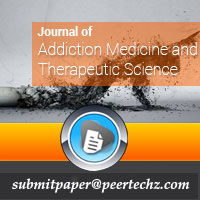
Journal of Addiction Medicine and Therapeutic Science
ISSN: 2455-3484
Journal of Addiction Medicine and Therapeutic Science is an international, open access, a peer reviewed academic and distinguished journal which covers the outstanding and most update research works⁄peak quality papers on related to clinical prevention and treatment to harmful alcohol, tob ... Read More
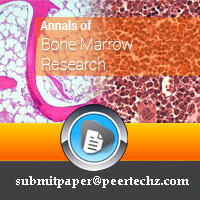
Annals of Bone Marrow Research
ISSN: 2692-4684
Bone Marrow is the spongy tissue inside some of the bones in the body, including the hip and thigh bones. Bone Marrow contains immature cells, called stem cells. Numerous people with blood cancers such as leukemia, lymphoma, sickle cell anemia and other life-threatening diseases, rely on B ... Read More
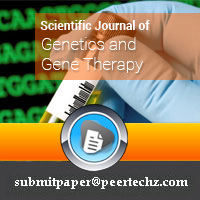
Scientific Journal of Genetics and Gene Therapy
ISSN: 2640-7744
Scientific Journal of Genetics and Gene Therapy is an international and interdisciplinary, open access, scientific and elevated scope journal which covers most up-to-date and excellent research works/top quality papers on gene therapy and genetics including molecular genetics and evolution ... Read More
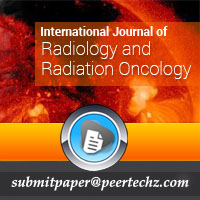
International Journal of Radiology and Radiation Oncology
ISSN: 2640-7566
International Journal of Radiology and Radiation oncology is a peer reviewed open access journal that publishes high-quality original manuscripts in all the disciplines of diagnostic, interventional, therapeutic radiology, radiation physics and radiation biology. The Journal deals the use ... Read More

Global Journal of Cancer Therapy
ISSN: 2581-5407
Global Journal of Cancer Therapy is an academic, open access and well-established journal which is keen to publishing high quality manuscripts focusing on cancer therapy. The peer reviewed journal which creates scientific platform is taking into an account on all the most recent and outsta ... Read More
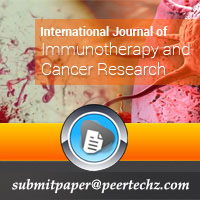
International Journal of Immunotherapy and Cancer Research
ISSN: 2455-8591
International Journal of Immunotherapy and Cancer Research is a multi-disciplinary peer-reviewed, open access journal. Journal brings together all the varied aspects of research that will ultimately lead to the prevention of cancer. With the goal of advancing technology and improving healt ... Read More

Open Journal of Environmental Biology
ISSN: 2690-0777
Open Journal of Environmental Biology is a broad-based, peer-reviewed, leading International Journal, and which offers a comprehensive range of multidisciplinary scientific research, review papers dealing with all aspects of Environmental Sciences, Environmental Pollution, Toxicology, Envi ... Read More

Global Journal of Ecology
ISSN: 2641-3094
Ecology provides the essential basis for nature conservation. It is the study of the distribution and abundance of organisms, the interaction between organisms and their environment, and structure and function of ecosystems. Although ecology includes the study of environmental problems suc ... Read More

Annals of Limnology and Oceanography
ISSN: 2641-3078
Limnology refers to a branch of ecology or environmental science. It covers the biological, chemical, physical, geological, and other attributes of all inland waters. Oceanography is the science of oceans and seas that includes different prominent aspects such as marine environmental manag ... Read More

Annals of Environmental Science and Toxicology
ISSN: 2641-2969
Annals of Environmental Science and Toxicology is a multidisciplinary peer-reviewed journal with reputable academics and experts. It is designed for the prompt publication peer-reviewed articles in the scope of the subject. Journal intended for professionals and researchers in all fields o ... Read More
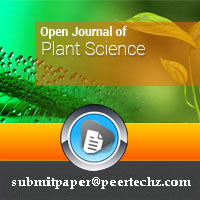
Open Journal of Plant Science
ISSN: 2640-7906
The Peertechz's Open Journal of Plant Science is a unique initiative to make society aware how plant science is of utmost importance for securing humankind's future well-being. Plant science or plant biology or botany is the study of plants, their diversity and structure, and how they f ... Read More
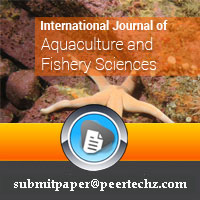
International Journal of Aquaculture and Fishery Sciences
ISSN: 2455-8400
The International Journal of Aquaculture and Fishery Sciences is an international research journal, which publishes top-level work from all areas of fisheries sciences and aquatic. Areas and subareas of interest include biology and ecology of marine and freshwater organisms, limnology, oce ... Read More

International Journal of Agricultural Science and Food Technology
ISSN: 2455-815X
International Journal of Agricultural Science and Food Technology is an international research journal, which publishes top-level work from all areas of Agricultural and Food Science including pure research in the various sciences associated with food; and practical experiments designed to ... Read More

Global Journal of Zoology
ISSN: 2640-7930
Zoology is the aspect of science that deals with the study of the animals' evolution, habitat and behavior. This science explains the world of animals, their evolution to the present forms over time, their habitats and food habits, and their co-existence with each other. Humans appreciate ... Read More
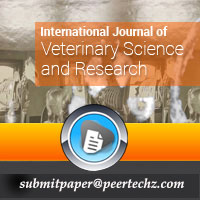
International Journal of Veterinary Science and Research
ISSN: 2640-7604
International Journal of Veterinary Science and Research is a comprehensive, peer reviewed journal devoted to Veterinary Science and Research. IJVSR is an Open Access journal that includes high quality papers, which covers all major areas of Veterinary Science & Research. Journal publicati ... Read More
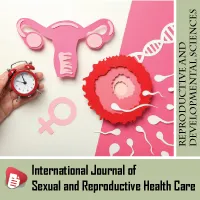
International Journal of Sexual and Reproductive Health Care
ISSN: 2690-0815
International Journal of Sexual and Reproductive Health Care is an open access, peer reviewed and a global journal. The journal is dedicated to its readers as an authoritative resource disseminating scientific information about sexual and reproductive health care related to men and women. ... Read More

Studies on Stem Cells Research and Therapy
ISSN: 2641-3000
Studies on Stem Cells Research and Therapy is an international, interdisciplinary, scientific, open access and well-established journal which is dedicated to publish high quality manuscripts focus on biology and applications of stem cell research and Transplantation. The peer reviewed jour ... Read More
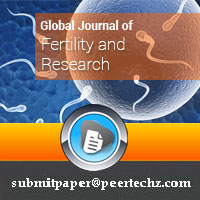
Global Journal of Fertility and Research
ISSN: 2640-7884
Fertility is the natural capability to produce offspring. As a measure, fertility rate is the number of offspring born per mating pair, individual or population. Human fertility depends on factors of nutrition, sexual behavior, consanguinity, culture, instinct, endocrinology, timing, econo ... Read More
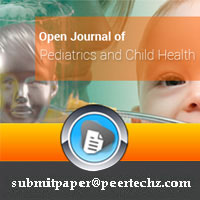
Open Journal of Pediatrics and Child Health
ISSN: 2640-7612
Open Journal of Pediatrics and Child Healthy is the official journal, is a peer-reviewed multi disciplinary journal that is devoted to promoting the safe and effective use of medications in infants and children. The journal publishes practical information for all practitioners who provide ... Read More

Annals of Antivirals and Antiretrovirals
ISSN: 2692-4625
Antivirals and Antiretrovirals are a class of medication specifically used to treat viral and retroviral infections caused by viruses like HIV, herpes viruses, hepatitis B and C. Antivirals are a class of drugs which are used to treat viral infections. The antiviral drugs target diverse gr ... Read More

Archive of Gerontology and Geriatrics Research
ISSN: 2690-0807
Archive of Gerontology and Geriatrics Research is an open access, peer reviewed journal that brings about latest research in all related fields of Gerontology and Geriatric Research. The Journal brings timely updates upon the latest research happenings in the field of medicine that include ... Read More
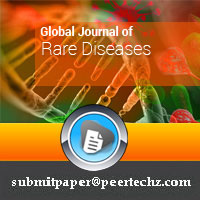
Global Journal of Rare Diseases
ISSN: 2640-7876
Rare diseases are life-threatening or chronically debilitating diseases which are of such low prevalence that special combined efforts are needed to address them. A rare disease, also referred to as an orphan disease, is any disease that affects a small percentage of the population. ... Read More

Archives of Preventive Medicine
ISSN: 2640-7868
Preventive medicine is the medical practice designed to avert and avoid disease. Preventive medicine takes a proactive approach to patient care. Preventive medicine includes all measures which limit progression of disease at any stage of its course. A distinction in preventive medicine is ... Read More
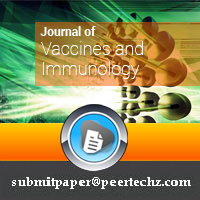
Journal of Vaccines and Immunology
ISSN: 2640-7590
Journal of Vaccines and Immunology is a peer reviewed, online, international, open access journal which encompassing aspects of research on all phases of immunology and in the research of Vaccines. The Journal is rapidly available, and easy to get globally through internet for scholarly de ... Read More
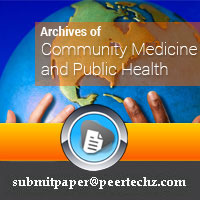
Archives of Community Medicine and Public Health
ISSN: 2455-5479
Archives of Community Medicine & Public Health is an international, open access, peer-reviewed Journal, dedicated to the clinical and investigative studies, treatments, new diagnostic techniques, and other topics relating to the prevention, diagnosis, and treatment of diseases affecting co ... Read More
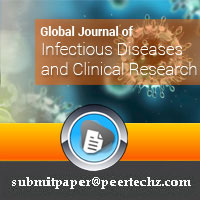
Global Journal of Infectious Diseases and Clinical Research
ISSN: 2455-5363
Global Journal of Infectious Diseases and Clinical Research is an international peer-reviewed journal founded by a network of experts across the globe recognized as the International Infectiologists Network. The mission of GJIDCR is to promote and publish infectious diseases research in ar ... Read More
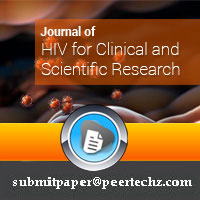
Journal of HIV for Clinical and Scientific Research
ISSN: 2455-3786
Journal of HIV for Clinical and Scientific Research is a peer-reviewed, an international, open access, online journal focus on progress in HIV-AIDS research and prevention. Journal of HIV for Clinical and Scientific Research is exclusively dedicated to publishing and disseminating all exce ... Read More
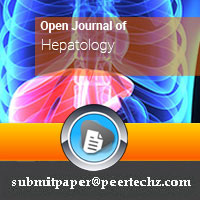
Open Journal of Hepatology
ISSN: 2994-4287
Hepatology is the branch of medicine concerned with the study of liver, gallbladder, biliary tree, and pancreas as well as management of their disorders. The term hepatology is derived from the Greek words “hepatikos” and “logia,” which mean liver and study, respectively. Diseases and comp ... Read More
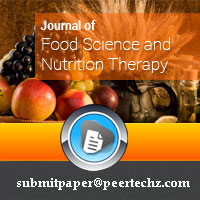
Journal of Food Science and Nutrition Therapy
ISSN: 2641-3043
Journal of Food Science and Nutrition Therapy is a International wide-ranging Open Access, peer reviewed; scientific journal that covers multidisciplinary fields and it provides an increased awareness of the Food, Nutrition, Nutrition Therapy, Dietary intake, Obesity, Weight Management, Nu ... Read More
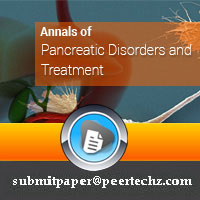
Annals of Pancreatic Disorders and Treatment
ISSN: 2692-4730
The Pancreas is a glandular organ in the digestive system and endocrine system of vertebrates. In humans, it is located in the abdominal cavity behind the stomach. The pancreas does two main things: It releases powerful digestive enzymes into the small intestine to aid the digestion ... Read More

Archive of Urological Research
ISSN: 2692-4706
Archive of Urological Research is an open access, global and peer reviewed journal. The journal provides an online platform for researchers to publish major breakthroughs and comprehensive information about surgical and medical diseases in urinary tract systems amongst humans. Journal has ... Read More
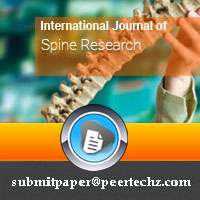
International Journal of Spine Research
ISSN: 2692-4692
International Journal of Spine Research is an open access, peer reviewed and global journal. It provides an excellent online platform for the scientific fraternity to share their research work across the world. The journal has been founded keeping in mind the increasing specialisation in a ... Read More
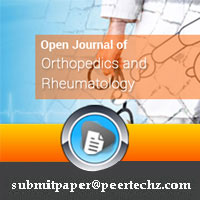
Open Journal of Orthopedics and Rheumatology
ISSN: 2641-3116
Rheumatology and Orthopedics deal with the branch of medical science which consists of human bones. Thus, it is Online Journal, Orthopedics & Rheumatology ensures that the modern society of scholars, researchers and scientists have proper knowledge about the advancement of technology and m ... Read More

Archives of Hepatitis Research
ISSN: 2641-2977
Archives of Hepatitis Research is an international, open access, peer-reviewed Journal, dedicated to the clinical and investigative studies, treatments, new diagnostic techniques, and other topics relating to the prevention, diagnosis, and treatment of disorders of the Hepatitis. The journ ... Read More
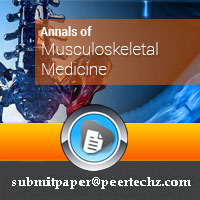
Annals of Musculoskeletal Medicine
ISSN: 2640-8139
Musculoskeletal medicine embodies all medical disciplines that deal with the diagnosis of acute and chronic conditions affecting the musculoskeletal system in adults and children, including the psychosocial impact of these conditions. Musculoskeletal conditions may result from a wide range ... Read More
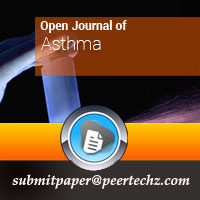
Open Journal of Asthma
ISSN: 2640-8082
Asthma is a disease affecting the airways that carry air to and from our lungs. People who suffer from this chronic condition, long-lasting or recurrent are said to be asthmatic. The inside walls of an asthmatic's airways are swollen or inflamed. This swelling or inflammation makes the air ... Read More
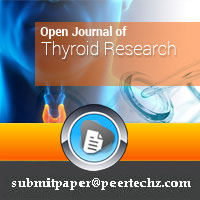
Open Journal of Thyroid Research
ISSN: 2640-7981
Peertechz welcomes all the authors, researchers, scientists and doctors to send their valuable manuscripts for publication in Open Journal of Thyroid Research. The Open Journal of Thyroid Research is a peer-reviewed official journal of Peertechz that publishes original research articles, r ... Read More
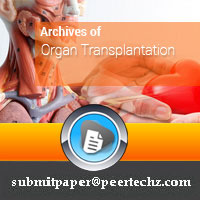
Archives of Organ Transplantation
ISSN: 2640-7973
Organ transplantation is a surgical procedure to replace a failing, diseased organ with a healthier donor organ, such as a heart, liver, kidney, or lung. Donor organs can come from deceased donors, which is always the case in heart transplants, or from living donors, which can happen in ki ... Read More
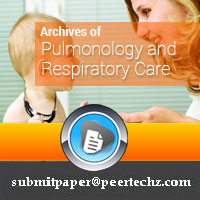
Archives of Pulmonology and Respiratory Care
ISSN: 2581-3684
Archives of Pulmonology and Respiratory Care is an international, open access, peer-reviewed Journal, dedicated to the clinical and investigative studies, treatments, new diagnostic techniques, and other topics relating to the prevention, diagnosis, and treatment of diseases related to res ... Read More
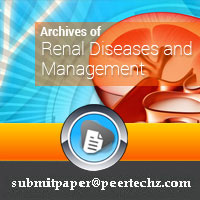
Archives of Renal Diseases and Management
ISSN: 2455-5495
Archives of Renal Diseases and Management is an international, open access, peer-reviewed Journal, dedicated to the clinical and investigative studies, treatments, new diagnostic techniques, and other topics relating to the prevention, diagnosis, and treatment of diseases. The journal publ ... Read More
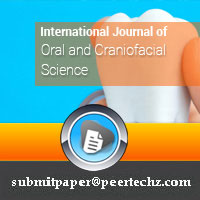
International Journal of Oral and Craniofacial Science
ISSN: 2455-4634
International Journal of Oral and Craniofacial Science is a wide-ranging Open Access, peer reviewed, internationally-recognized; scientific journal that covers multidisciplinary fields and it provides an increased awareness of the craniofacial science and maxillofacial surgery. We propose ... Read More
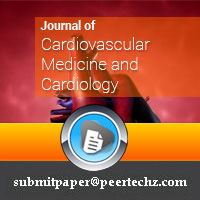
Journal of Cardiovascular Medicine and Cardiology
ISSN: 2455-2976
Journal of Cardiovascular Medicine and Cardiology is an international and interdisciplinary scientific, open access, online, and elevated scope journal which covers the most update and outstanding research works/top quality papers on cardiovascular disease which includes cardiac coronary, ... Read More

Archives of Otolaryngology and Rhinology
ISSN: 2455-1759
Archives of Otolaryngology & Rhinology is an international, open access, peer-reviewed Journal, dedicated to the clinical and investigative studies, treatments, new diagnostic techniques, and other topics relating to the prevention, diagnosis, and treatment of diseases of Ear, Nose and Thr ... Read More

Journal of Dental Problems and Solutions
ISSN: 2394-8418
Dentistry is a branch of medicine that is involved in the study, diagnosis, prevention and treatment of diseases, disorders and conditions of the oral cavity, the oral mucosa and of adjacent and related structures and tissues, particularly in the maxillofacial (jaw and facial) area. The Jo ... Read More

Open Journal of Cell and Protein Science
ISSN: 2994-4171
Proteins are large molecules, made by human body cells continuously. Each protein is made up of many amino acids which may be joined together in correct order for the protein to work properly. In order to illustrate this concept, we can take a general example of assembling automobiles. ... Read More
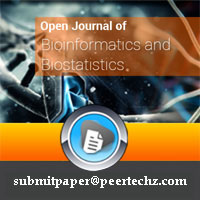
Open Journal of Bioinformatics and Biostatistics
ISSN: 2994-4163
Open Journal of Bioinformatics and Biostatistics is a peer reviewed Open Access Journal endeavored to comprehend research and development in the field of Bioinformatics and Biostatistics. The journal aims to publish high quality original research papers, viewpoint articles, technical paper ... Read More

Annals of Systems Biology
ISSN: 2692-4765
Systems biology is based on the understanding of the human health and environmental sustainability. The systems biology is considered as the most holistic approach to deciphering the complexity of biological systems that starts from the understanding that the networks that form the whole o ... Read More

Forensic Science Today
ISSN: 2692-4722
Forensic Science Today is a multidisciplinary subject that drawn principally from Chemistry, Physics, Biology, Geology, Psychology and even social sciences. Forensic plays an important role in criminal investigations and it is equally used in archeology, Anthropology, Astronomy and Victimo ... Read More
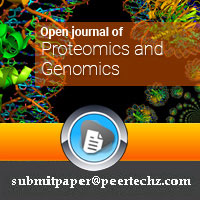
Open Journal of Proteomics and Genomics
ISSN: 2692-4641
Peertechz’s Open Journal of Proteomics is a highly versatile initiative towards the development of knowledge and inspiration. Open Journal of Proteomics encourages academicians, scientists, innovators, doctors and authors to publish path breaking research articles and discoveries in Proteo ... Read More
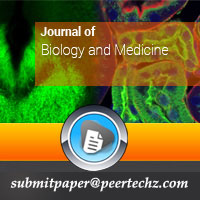
Journal of Biology and Medicine
ISSN: 2688-8408
Journal of Biology and Medicine is a one of a kind journal which publishes scientific peer-reviewed articles with emphasis to cellular and molecular basis of biology and medicine. It is an open access journal and promote publications for developing and under developed countries with "Publi ... Read More

Open Journal of Bacteriology
ISSN: 2640-8007
Bacteriology is the branch of biology devoted to the study of bacteria. This subdivision of microbiology involves the identification, classification, and characterization of bacterial species. Bacteria including both the true bacteria and the Archaea are the oldest and most diverse forms o ... Read More

Global Journal of Biotechnology and Biomaterial Science
ISSN: 2640-7817
Global Journal of Biotechnology and Biomaterial Science is an academic journal providing an opportunity to researchers and scientist to explore the advanced and latest research developments in the use of living organisms and bioprocesses in engineering, technology, and medicine. The Global ... Read More

Open Journal of Biological Sciences
ISSN: 2640-7795
Open Journal of Biological Sciences is a bimonthly journal publishes the finest peer-reviewed research in the field of biology, on the basis of its originality, importance, disciplinary interest, elegance, surprising discussions and conclusions and serves as a means for scientific informat ... Read More

Annals of Marine Science
ISSN: 2640-2300
Are you are fascinated by amazing marine and coastal environments and eager to write about? If yes, Peertechz’s Annals of Marine Science is the ideal platform that assists you in developing and publishing manuscripts on marine science. The oceans are part of the thin, outer shell of the ... Read More
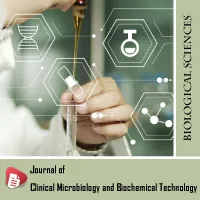
Journal of Clinical Microbiology and Biochemical Technology
ISSN: 2581-527X
Journal of Clinical Microbiology and Biochemical Technology is the journal aspired to serve as prominent form of communication with online publishing speeding quickly to meet the needs of literature world by publishing quality articles and making aware the people with new technologies in M ... Read More

Open Journal of Analytical and Bioanalytical Chemistry
ISSN: 2689-7628
Open Journal of Analytical and Bioanalytical Chemistry is a most popular Open access, peer reviewed journal with a mission to publish excellent research papers in the area of Analytical and Bioanalytical Chemistry. Open Journal of Analytical and Bioanalytical Chemistry is an international ... Read More

Open Journal of Chemistry
ISSN: 2641-3051
Open Journal of Chemistry is a peer-reviewed, open-access journal dedicated to the latest advancements in medicinal chemistry. The goal of this journal is to provide a platform for scientists and academicians all over the world to promote, share, and discuss various new issues and perspe ... Read More
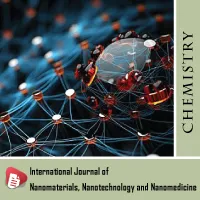
International Journal of Nanomaterials, Nanotechnology and Nanomedicine
ISSN: 2455-3492
International Journal of Nanomaterials, Nanotechnology and Nanomedicine is a multidisciplinary peer-reviewed journal covering fundamental and applied research in all disciplines of science, engineering and medicine. The journal is also committed to create an impact in the field of Nanomate ... Read More

Annals of Robotics and Automation
ISSN: 2994-418X
Robotics is the branch of mechanical engineering, electrical engineering, electronic engineering and computer science that deals with the design, construction, operation, and application of robots as well as computer systems for their control, sensory feedback, and information processing. ... Read More

Trends in Computer Science and Information Technology
ISSN: 2641-3086
Trends in Computer Science and Information Technology is an open access journal that publishes articles, which contribute new repercussions in selected areas of the computer science and engineering. It is a peer reviewed journal intended for professionals and researchers in all fields of ... Read More

Archive of Biomedical Science and Engineering
ISSN: 2641-3027
Archive of Biomedical Science and Engineering is an Open Access, peer-reviewed, academic journal, which gives an area to share the information among the medical scientists and researchers. Archive of Biomedical Science and Engineering is a scientific journal including a wide range of field ... Read More

Journal of Civil Engineering and Environmental Sciences
ISSN: 2455-488X
The Journal of Civil Engineering and Environmental Sciences, which is a part of Recent Science Journals provides a wide range of the highly technological, original, creative and quality publications covering a broad area of research activities in the Civil and Environmental Engineering sci ... Read More
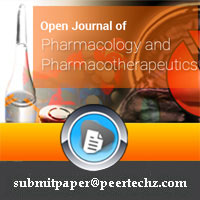
Open Journal of Pharmacology and Pharmacotherapeutics
ISSN: 2692-4757
Open Journal of Pharmacology and Pharmacotherapeutics is a peer reviewed journal, which is a part of Pharmaceutical Sciences. Journal aims to provide a better platform to foster research and sharing of ideas across various spectrums of pharmacology and pharmacokinetics among students, rese ... Read More
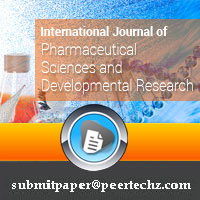
International Journal of Pharmaceutical Sciences and Developmental Research
ISSN: 2640-7760
International Journal of Pharmaceutical Sciences and Developmental Research provide an unrestricted access to information in the field of Pharmacy and Pharmaceutical Sciences by covering wide and diversified themes like drug discovery and development, adverse drug events and toxicological ... Read More

Annals of Mathematics and Physics
ISSN: 2689-7636
Annals of Mathematics and Physics is an open access, global and peer reviewed journal. It is dedicated to publishing cutting edge research work in the field of Mathematics and Physics. The journal has a distinguished and eminent Editorial board which takes care of stringent peer review pr ... Read More














































































































 NIH Funded Articles
NIH Funded Articles

